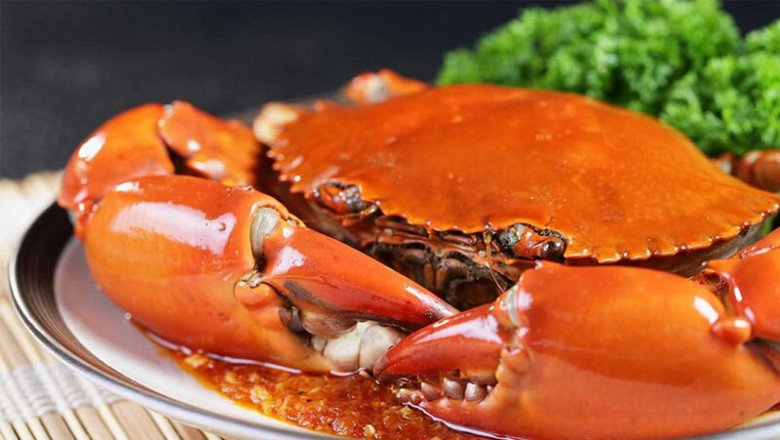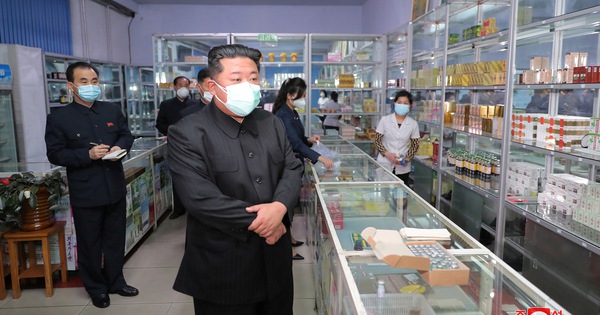Nutritional composition of crab
Crab is one of the most loved among the popular seafood. Crab meat contains many nutrients but is much lower in mercury than fish, so it can bring many health benefits.
Crab meat is rich in vitamin B12, folate, iron, niacin, selenium, zinc… In 100 grams of crab meat contains nutritional components including:
– Water: 79.69 g
– Calories: 347
– Protein: 17.88 g
– Fat: 0.74 g
– Ash: 1.96 g
– Calcium: 91 mg
– Iron: 0.5 mg
– Magnesium: 36 mg
– Phosphorus: 234 mg
– Potassium: 254 mg
– Sodium: 563 mg
– Zinc: 3.81 mg
– Copper: 0.81 mg
– Selenium: 42.9 micrograms
– Fluoride: 209.9 micrograms
– Vitamin C: 3.3 mg
– Riboflavin: 0.09 mg
– Niacin: 2.75 mg
– Folate: 51 micrograms
– Vitamin E, Vitamin A, Vitamin K
– Compounds: Tryptophan, threonine, isoleucine, leucine, lysine, methionine, cystine, phenylalanine, tyrosine, valine, arginine, histidine, alanine, aspartic acid, glutamic acid…
What are the benefits of eating crabs?
Crab contains a lot of protein, which is important for building and maintaining muscle. Crab is also high in omega-3 fatty acids, vitamin B12 and selenium. These nutrients play an important role in improving general health while helping to prevent a wide range of chronic diseases. Here are some health benefits of eating crab:
1. Improves Heart Health
The omega-3 fatty acids in crab offer many benefits related to heart health. These important nutrients can help reduce triglycerides, reduce blood clotting and reduce the risk of irregular heartbeat, which in turn is good for the cardiovascular system.

2. Prevention of anemia
The many nutrients found in crab, including vitamin B12 and folate, help reduce the risk of vitamin deficiency anemia. People with vitamin deficiency anemia do not have enough healthy red blood cells and as a result may experience fatigue or weakness.
3. Good for brain activity
Research shows that people who eat seafood, such as crab, at least once per week have a reduced risk of dementia and the risk of Alzheimer’s disease. This protection may stem from the high amounts of omega-3 fatty acids found in seafood products.
4. Anti-inflammatory
In addition to omega-3 fatty acids, other nutrients and minerals in crab meat can reduce or even eliminate inflammation. Therefore, eating crab can relieve arthritis problems or digestive tract problems.
5. Strengthens the Immune System
If the body’s immune system is weak, it will inadvertently open the way for pathogens to cause illness. To boost immunity in the body, you can add crab to your daily meal. Selenium in crab meat helps stimulate the activity of the immune system, making the immune system stronger. Selenium and riboflavin are two minerals found in crab meat that play an important role in improving the function of the immune system and fighting a number of chronic diseases. These antioxidants have also been shown to neutralize free radicals that can cause cell mutations.
6. Good for the eyes
Crab is a great source of vitamin A for the body, helping to improve eyesight. Vitamin A contains organic compounds such as retinol, retinal, retinoic acid, andbeta-carotene that contribute to maintaining eye health and preventing macular degeneration or cataracts.
7. Stabilize insulin levels
Crab meat is rich in chromium, which has the ability to reduce blood sugar, thereby helping to stabilize insulin levels in the blood. Therefore, people with diabetes can eat crab without concern like some other foods.
8. Good for bones
Crab meat contains a lot of calcium and phosphorus. These are all important minerals that promote bone health.
9. Prevents Prostate Cancer
In crab meat contains a large amount of selenium, which eliminates the carcinogenic potential of cadmium, arsenic, silver and mercury. This accelerates the removal of cancer cells and slows tumor growth. Scientific research shows that foods high in omega 3 fatty acids such as crab meat can prevent the spread of prostate cancer to other parts of the body.

The harmful effects of crabs
Crab is a seafood containing lower levels of mercury than other types, but can still be a concern, depending on how it is caught and prepared. Brown crab meat can be high in cadmium, causing poisoning when consumed in large quantities.
In addition, the high protein content in sea crab meat also affects people who are in need of weight loss or suffer from gout.
Crab living in polluted water can be contaminated with Dioxins and PCBs, causing skin rashes, weakening the immune system, neurological disorders, liver damage, increasing the risk of cancer.
Many people are allergic to crabs and seafood, causing hives, itching all over the body, hangovers, headaches, dizziness and even difficulty breathing, coma, low blood pressure, leading to death if not treated promptly.
People with high blood pressure, diabetes and kidney disease should not eat too much crab because the high sodium content in crab meat can make the condition worse.
at Blogtuan.info – Source: Eva.vn – Read the original article here



![[中文] Final Four Knockout Day 2 | MSI 2022 - League of Legends Mid-Season Invitational 6 [中文] Final Four Knockout Day 2 | MSI 2022 – League of Legends Mid-Season Invitational](https://i.ytimg.com/vi/hwvsJ2U-Hvo/maxresdefault.jpg)

